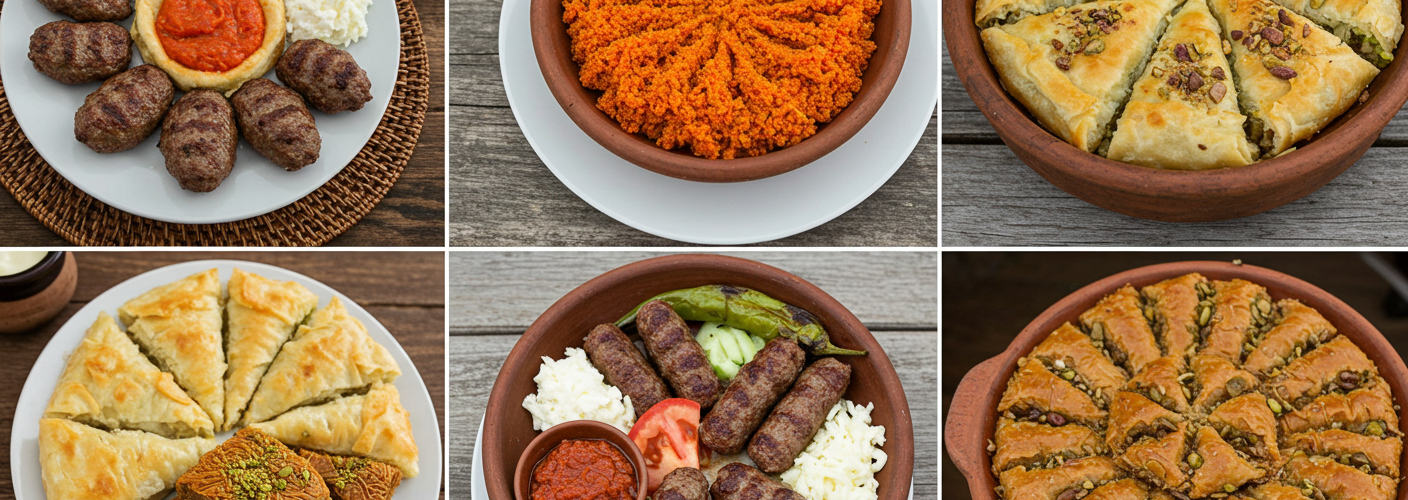When we think of Bosnia and Herzegovina, images of stunning landscapes, rich history, and vibrant culture come to mind. However, one of the most delightful aspects of this Balkan country is its exquisite food. Bosnian cuisine is a fusion of flavors, a reflection of its diverse cultural influences, steeped in tradition and made with love.
Bosnia’s culinary landscape is shaped by various influences due to its geographical position at the crossroads of East and West. This blending of cultures is apparent in the dishes that have been cherished over generations. The foundation of Bosnian food includes a mix of Mediterranean, Middle Eastern, and Central European cuisines, resulting in meals that are hearty, flavorful, and comforting.
One of the most iconic dishes you must try is ćevapi, small, grilled minced meat sausages typically served with somun (a type of flatbread) and onions. These savory bites are popular street food and can be found at countless restaurants and eateries across the country. The secret to their taste lies in the quality of the meat and the careful blending of spices before grilling them to perfection.
Another traditional dish worth trying is sogan-dolma – onions stuffed with minced meat and rice, simmered in a rich tomato sauce. This dish showcases the Bosnian method of slow cooking, allowing flavors to meld beautifully. It’s often enjoyed as a comforting meal during family gatherings, illustrating the importance of shared dining experiences in Bosnian culture.
For those seeking comfort food, ti s lica or manti (Bosnian dumplings) are a must. These dumplings can be filled with various ingredients, often seasoned minced meat or pumpkin, and are typically served with yogurt and garlic sauce. This dish is especially popular in winter months, providing warmth and satisfaction while bringing families together.
Additionally, the soup culture in Bosnia cannot be overlooked. A bowl of burek soup, made with layers of flaky pastry filled with minced meat and onions, is a beloved starter. It pairs perfectly with **divinely buttery and flaky *burek*, a savory pastry filled with minced meat, spinach, or cheese. Burek is usually hand-crafted and baked in large circular pans, served hot and often enjoyed with a dollop of yogurt on the side.
No meal in Bosnia would feel complete without something sweet. Bosnian desserts often feature the rich flavors of nuts, honey, and fruits. One must-try is tufahija, a traditional sweet treat made from poached apples filled with walnuts and sugar, served chilled. It perfectly captures the essence of Bosnian hospitality, offering a sweet ending to a hearty meal.
Bosnia’s food scene is also characterized by its vibrant cafes and bakeries. The local bakeries (picerije) are often bustling with life, and the aroma of fresh bread wafts through the air. After a meal, a cup of Bosnian coffee, typically served with sugar and Turkish delight, is a delightful way to conclude your culinary journey.
In summary, exploring Bosnian cuisine offers not just a taste of delightful dishes but also a glimpse into the heart of its culture and traditions. From flavorful meats and rich pastries to wholesome soups and sweet desserts, Bosnia’s food scene is a treasure trove waiting to be discovered. Whether you’re dining in a local restaurant or sharing a meal with a Bosnian family, you’re sure to savor the warmth and hospitality that define this beautiful country.




Add comment